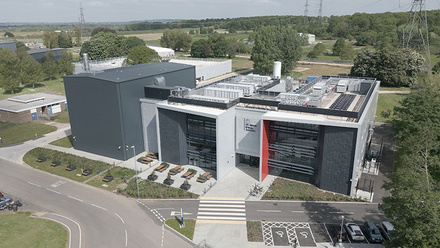Getting the UK back on track for a net-zero 2050
Five policy interventions to deliver UK net-zero have been outlined by University of Oxford researchers.

The Climate Econometrics Programme at the University has oulined the interventions in a strategy paper published in Renewable Energy.
These suggested policies are in response to findings from the Parliamentary Climate Change Committee, which recently found the UK to be lacking progress in some areas to deliver zero net emissions by 2050.
The 'sensitive intervention points' (SIPs) have been deemed by the University's senior climate econometricians to trigger behavioural changes and put the UK back on track.
Professor Jennifer Castle, Director of the Climate Econometrics Programme at the University of Oxford, and Sir David Hendry, of the Climate Econometrics Programme at Nuffield College, suggest:
- Zero greenhouse gas electricity generation – greatly expanded renewable energy backed by increased storage and potential development of safe, small modular nuclear reactors.
- Zero greenhouse gas emissions from transportation – using electric vehicles as a network of short-term storage units, plugged into an intelligent, resilient and expanded grid, plus a government-funded scrappage scheme.
- Low-cost hydrogen from cheap surplus renewable energy, liquefied for medium-term storage and industry – producing many products like glass far more cheaply.
- Changing domestic energy to heat pumps and solar photovoltaics – after retrofitting, promoting solar windows and smart glazing.
- Harnessing electricity in agriculture – expanding vertical and underground farms in inner cities and ground basalt as a cheap fertiliser.
Castle says the economists; mantra of carbon taxes is not rapidly effective enough without behaviour change.
'The focus of SIPs is because behaviour change measures need to be implemented quickly and must have wide reach to be effective and ensure climate neutrality by 2050 can be met. By targeting a small number of areas we can achieve outsized impacts and maximise the benefits of the energy transition for the UK,' she says.







